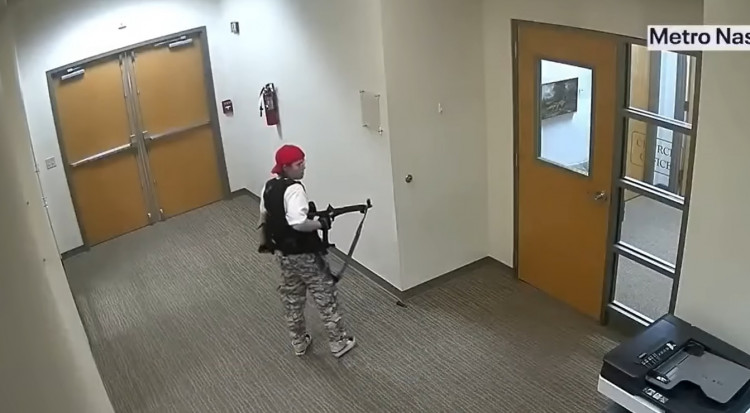In the wake of a tragedy that left six dead at The Covenant School in Nashville, a new development has emerged, casting a shadow on the community's grieving process. The unauthorized disclosure of the shooter's personal writings has prompted a major investigation, with Nashville's legal department, under the direction of Mayor Freddie O'Connell, seeking to unearth the origins of the leak.
The writings in question, linked to Audrey Hale, who executed the deadly March attack, were made public by Steven Crowder, a conservative radio host. Crowder showcased what he claimed were images of Hale's writings from the day of the shooting. Nashville Police Chief John Drake, in a late Monday statement, confirmed the writings' authenticity and expressed his disturbance over the leak.
This confirmation came amidst mounting speculation and legal battles over the writings' content, which includes at least 20 journals, a suicide note, and a memoir. Authorities, who have been withholding the release until the completion of their investigation, face increasing pressure as the community seeks answers and closure.
The debate over the disclosure of the shooter's journals has been further complicated by right-wing narratives surrounding Hale's gender identity and the motivations for the attack. Gov. Bill Lee has voiced frustration over the opacity surrounding the writings, pushing for greater transparency, despite the state's lack of legal authority over the documents.
The tension is palpable within the Covenant community, where families, still in the throes of mourning, fear that the publication of Hale's thoughts could incite similar acts of violence. Brent Leatherwood, a parent at the Covenant School, expressed the collective anxiety, imploring those circulating the documents online to cease capitalizing on the tragedy for traffic and notoriety.
The Metro Nashville Police Department, while confirming the writings did not originate from their crime scene images, is cooperating with the investigation. Wally Dietz, Nashville's law director, acknowledged the probe but refrained from commenting on the documents' authenticity due to the scant information regarding the potential leak.
The legal wrangle over the release of the writings saw more than 100 Covenant families petitioning to intervene, fearing further trauma from the exposure. Their appeal is currently under review by an appellate court, which is deliberating on the lawfulness of a previous judge's ruling.
The investigation continues to unfold as questions linger about Hale's "emotional disorder," a detail released by police with no clear link to the motive behind the massacre. The refusal to release the writings feeds into the whirlwind of conjecture and conspiracy, leaving the community in search of truth amidst their grief.
For a city striving to heal, the focus remains on honoring the lives of the young victims-Evelyn Dieckhaus, Hallie Scruggs, and William Kinney-and the adults Katherine Koonce, Mike Hill, and Cynthia Peak. Amidst the turmoil, Nashville awaits answers, justice, and a path forward from this dark chapter.




